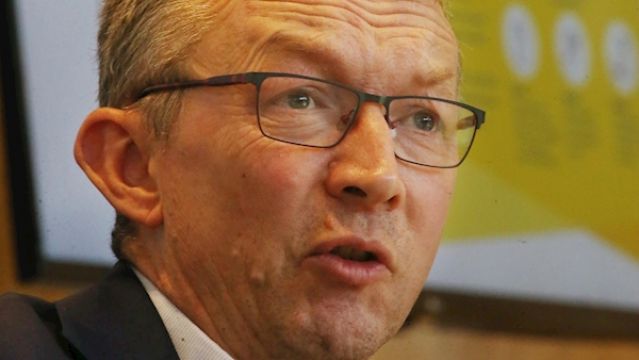Dr Martin Feeley, clinical director of the Dublin Midlands Hospital Group, said in an Irish Times article published today that current “draconian” restrictions are no longer justified to combat the virus.
The doctor said that people at low risk from the virus should have been exposed to the virus during the summer months before flu season, so they could develop herd immunity and reduce the risk to vulnerable groups.
In a statement issued this afternoon in response to his comments, the HSE said it “dissociates itself from and rejects the comments attributed to Dr Martin Feeley as reported in the Irish Times today.”
Chief Clinical Officer for the HSE Dr Colm Henry said: “For the avoidance of any doubt, the position as stated by Dr Feeley in the Irish Times today is not the position of the HSE on this important subject.”
Obsession
It comes as Dr Feeley had criticised the media and public “obsession” with daily case numbers of the virus when low numbers were being admitted to hospital or intensive care.
“The number of deaths among recent cases is less than one in a thousand. This data reflects a disease much less severe than the average annual flu,” he said.
“Experience has taught us that at-risk and vulnerable individuals are identifiable with remarkable accuracy; and protective measures, hygiene, masks, social distancing and cocooning are effective,” he told the Irish Times.
Dr Feeley also said Ireland’s response to the virus should take into account the cost of people’s quality of life and added “you can’t postpone youth”.
“The financial cost can be seen in any walk or drive through cities, towns and villages. Mortgage repayments and other financial setbacks are virtually all suffered by the young worker or business person and not by the over-65, who are guaranteed their pension, as indeed are the salaries of the individuals who decide to inflict these draconian measures,” the 70 year old told the paper.
There have been over 28 million cases and 900,000 deaths worldwide.
Advertisement
In response to Dr Feeley’s comments, the HSE said: “The WHO declared a Covid-19 pandemic on March 11th. There have been over 28 million cases and 900,000 deaths worldwide, many among older and vulnerable populations.
“This is a novel coronavirus for which there is no cure or vaccination currently and against which our population have no immunity. Herd immunity for an infectious disease occurs when a sufficient proportion of the population develops a sustained immunity either through vaccination or previous infection.
“Relying on infection, as we now know, has the power to overwhelm healthcare systems and lead to large-scale illness and death, particularly in vulnerable populations.
“According to the WHO, the threshold for establishing herd immunity is not yet clear. Neither is the duration of post-infection immunity known.
“The most effective way of protecting older people and vulnerable groups is not by expecting them to protect themselves, but by everybody adhering to the public health advice which that will limit transmission of the virus between individuals and households.”







